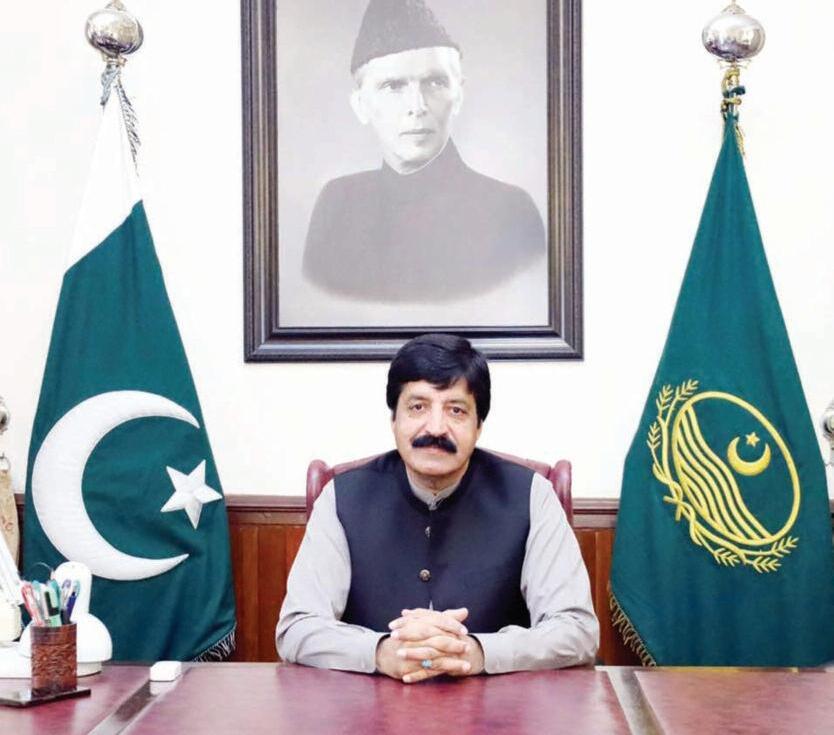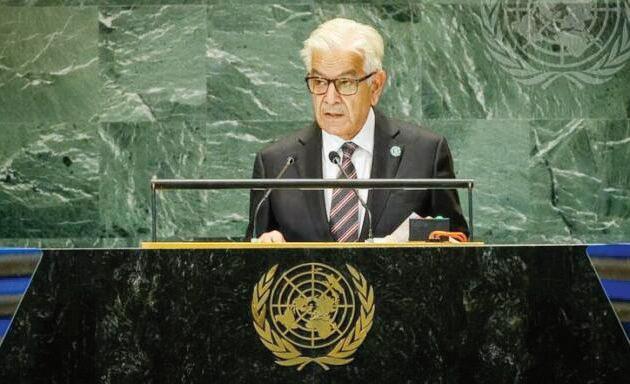

PAKISTAN COMMITTED TO ENHANCE COOPERATION WITH MALDIVES IN DIVERSE FIELDS: PM
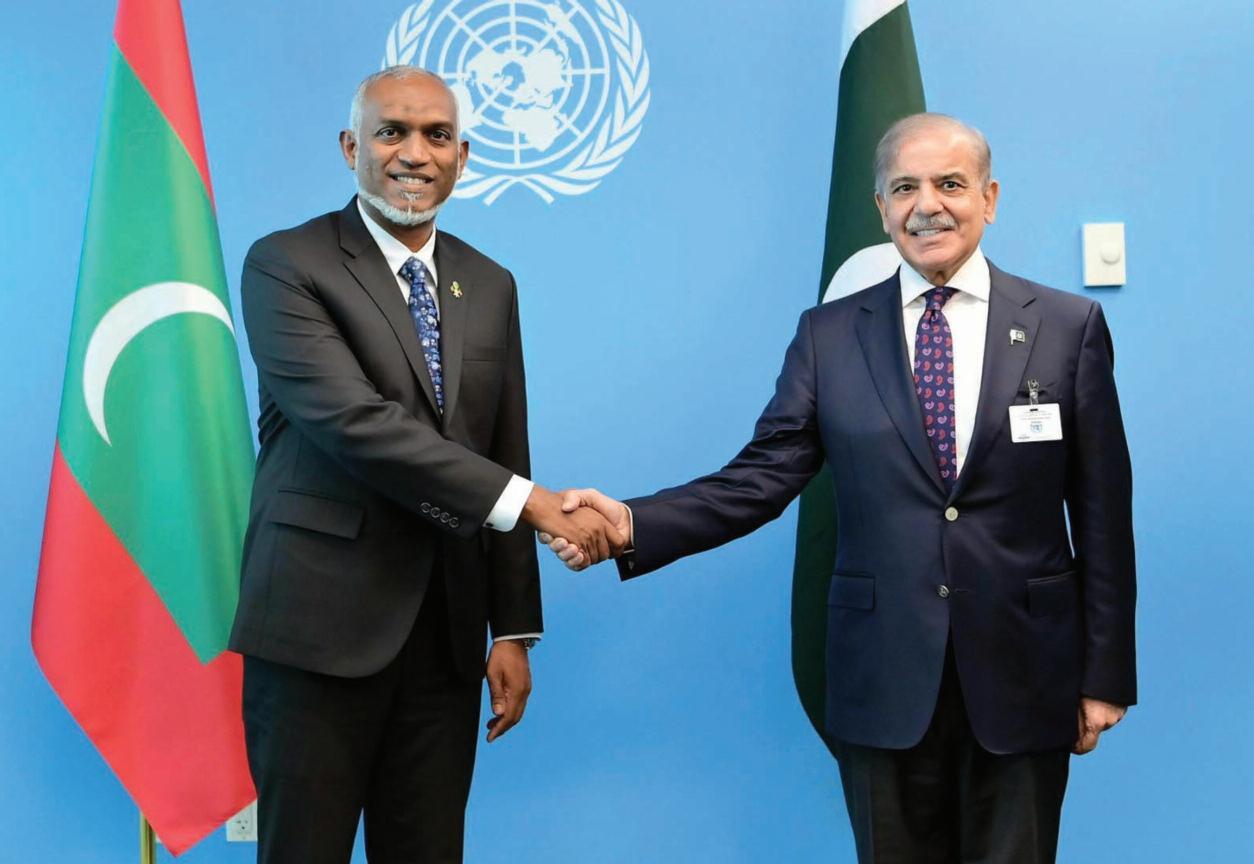
Cour t gives PTI counsels ‘last chance’ to cross-examine witness in £190m reference
The Rawalpindi Accountability Court on Tuesday gave lawyers of Pakistan Tehreek-e-Insaf (PTI) founder Imran Khan and his wife the last chance to cross-examine the sole remaining witness in the £190 million corruption reference Accountability Court Judge Nasir Javed Rana conducted hearing at the Rawalpindi’s Adiala Jail against the PTI founder and his wife accused of causing billions of rupees loss to the national exchequer through embezzlement As proceedings started the lawyers apprised the court that Bushra Bibi s counsel Usman Gul could not show up as he was unwell Hence, they said, crossexamination could not be held from the investigation officer (IO) the last witness in the reference The court expressed discontent with the PTI founder s counsels once again seeking to postpone the hearing without cross-examining the witness
The National Accountability Bureau (NAB) prosecutor opposed the request for adjourning the hearing, saying 12 letters of attorney had been submitted by the suspects’ lawyers Therefore he was of the view that other senior lawyers present in the court could cross-examine the witness
The NAB s prosecutor said the last witness of the 190 million pound reference had been appearing for the previous 23 hearings, but he was not being crossexamined “Barrister Ali Zafar and Intazar Panjutha are present in the court and they should cross-examine the witness the NAB official said He also said the Islamabad High Court (IHC) stopped the trial court from announcing a verdict but not from carrying a trial Giving the last chance to crossexamine the witness, the court has adjourned the hearing till Wednesday (tomorrow) IHC on September 18 stopped the accountability court from issuing a final verdict in the £190 million settlement case against incarcerated Imran and Bushra A two-member bench of the high court comprising Chief Justice Aamer Farooq and Justice Miangul Hassan Aurangzeb heard the couple s acquittal plea in the said case
Minister for Information, Broadcasting National Heritage and Culture Attaullah Tarar on Tuesday said the clock could not be turned back to give the reserved seats to the Pakistan Tehreek-eInsaf (PTI) which had made an irreversible mistake by joining the Sunni Ittehad Council in the Parliament which was not a parliamentary party Talking to the media the minister said the PTI could have joined the Majlis Wahdat-e-Muslimeen which had a presence in the House He said the government fully endorsed the letter written by the National Assembly Speaker to the Chief Election Commissioner asking how the seats could be given to
a party which did not have any existence in the House Tarar asked whether the court could rectify the mistake made by the PTI in the past Whether the independent candidates submitted fake affidavits or they did not attain finality by joining a party, or whether every member had such space to change a party in the House by canceling the affidavit questioned He pointed out that the amendment in the existing election law made it mandatory for an independent candidate to join any political party within three days and “going against the line of a political party for which the affidavit was submitted in the House is tantamount to floor crossing The minister expressed surprise over a statement of PTI leader Salman Akram Raja that he
was asked by the court that whether he had any reservations if the PTI were given the reserved seats The matter required an official clarification he added Moreover he said a senior justice in his dissenting note had raised very pertinent questions and asked how the PTI could be given relief when it was not a party to the case “Constitutionally these questions need to be addressed he noted He paid tributes to the NA Speaker for upholding the supremacy of the Parliament by writing a letter to the Chief Election Commissioner (CEC) on the issue of reserved seats His question was legally justified that how an Assembly member could be allowed to change the party by overruling legislation and reversing clock , he added
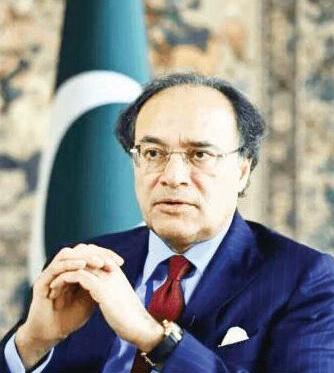
RAWALPINDI S TA F F R E
General Syed Asim Munir Chief of Army Staff (COAS) NI (M) visited Wana South Waziristan District where he received a comprehensive briefing on the prevailing security situation ongoing counter-terrorism operations, and development initiatives During his interaction with officers and troops,
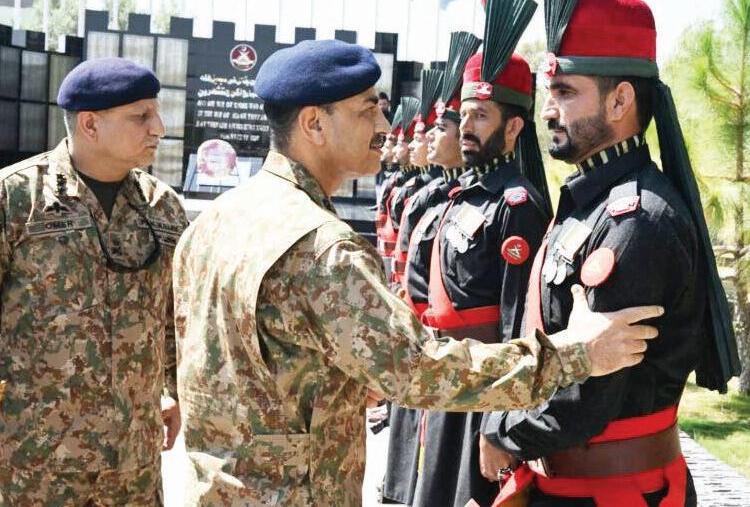
most of them soldiers, and devastated large swathes of Hezbollah’s strongholds Pakistan condemned the Israeli aggression in the strongest possible terms A statement from the Foreign Office (FO) said the act of aggression was a grave violation of the UN Charter and international law “It

PaKisTan, Bel arus To sign ‘Trade road
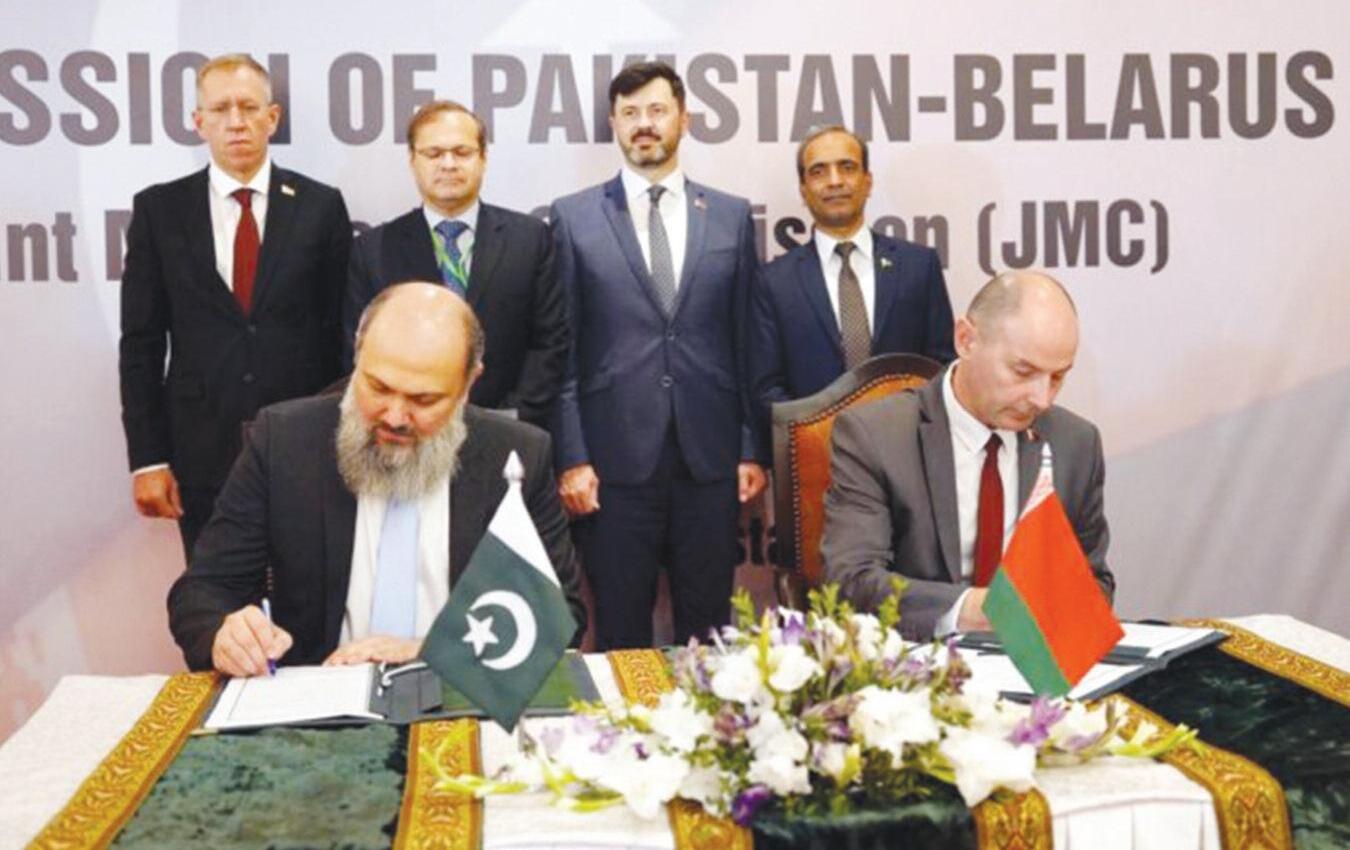
Ahsan Iqbal pushes for digitalization of Planning Ministr y ’s operations in one year
January incident when a door panel detached from a new 737 MAX jet mid-air
A P P Deputy Chairman of the Planning Commission of Pakistan Professor Ahsan Iqbal on Tuesday highlighted the importance of transitioning the entire Planning Ministry s operations online to meet the demands of the modern era, terming crucial for ensuring transparency, preventing resource wastage and improving governance “We must focus on bringing all of the ministry s operations online within a year he said while chairing a review meeting of ongoing development projects under the Ministry of Planning, Development and Special Initiatives Among others, the meeting was attended by Parliamentary Secretary for Planning Wajiha Akram a news release said Ahsan Iqbal advocated for the inclusion of private sector consultants to enhance the performance of the Ministry’s ongoing projects, adding, “The expertise of the private sector will be instrumental in improving project management and execution He also called for a critical review of ongoing projects, advising that those not contributing to governmental efficiency should be terminated He stressed the need for a more efficient and modernized approach to project planning and approval processes When approving new projects, their practical implications and expected outcomes must be thoroughly
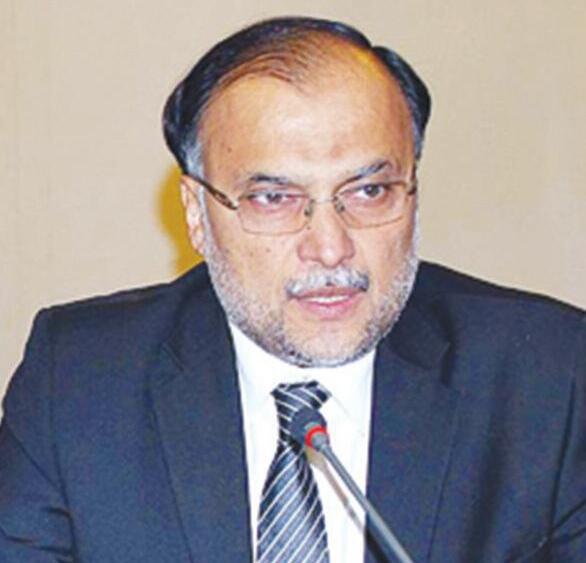
assessed Ministries need to move beyond mere project initiation and focus on successful completion, he added
The Deputy Chairman also issued strategic directives for improving the Intelligent Project Automation System (iPAS) under the Ministry of Planning adding iPAS should evolve into a comprehensive project management tool to ensure the highest level of efficiency in this key initiative
As the government prepares for the next Public Sector Development Program (PSDP) Ahsan Iqbal underscored the importance of determining the availability of resources for projects initiated by various ministries He reminded ministries to ensure that new projects are conceived within their allocated budgets
“Project directors must take responsibility for hiring project staff and every ministry must ensure that its projects are financially viable he added Ahsan Iqbal also stressed the criti-
cal role of the Pakistan Institute of Development Economics (PIDE) in supporting the government s economic agenda, specifically through research on economic growth, governance improvements, and new project proposals
nomic think tank for the government supporting the creation of sustainable projects that foster growth he maintained
Addressing the importance of the China-Pakistan Economic Corridor (CPEC), Ahsan Iqbal highlighted that $25 billion in investment had already been made under CPEC and tasked PIDE with assessing the impact of this investment on Pakistan s economy and business sectors
“The CPEC Center of Excellence must be merged with PIDE at the earliest opportunity to ensure that we leverage our academic and research capabilities to track the benefits of the $25 billion investment he added Ahsan Iqbal further emphasized that PIDE s research should benefit stakeholders across federal ministries and government institutions He remarked that the development of PhD professionals to serve the public sector is a fundamental responsibility of PIDE, and all federal ministries are its primary stakeholders “PIDE’s research must provide tangible benefits to its stakeholders We need to strengthen our governance frameworks through evidence-based research he remarked

P P Federal Minister for Communications Abdul Aleem Khan
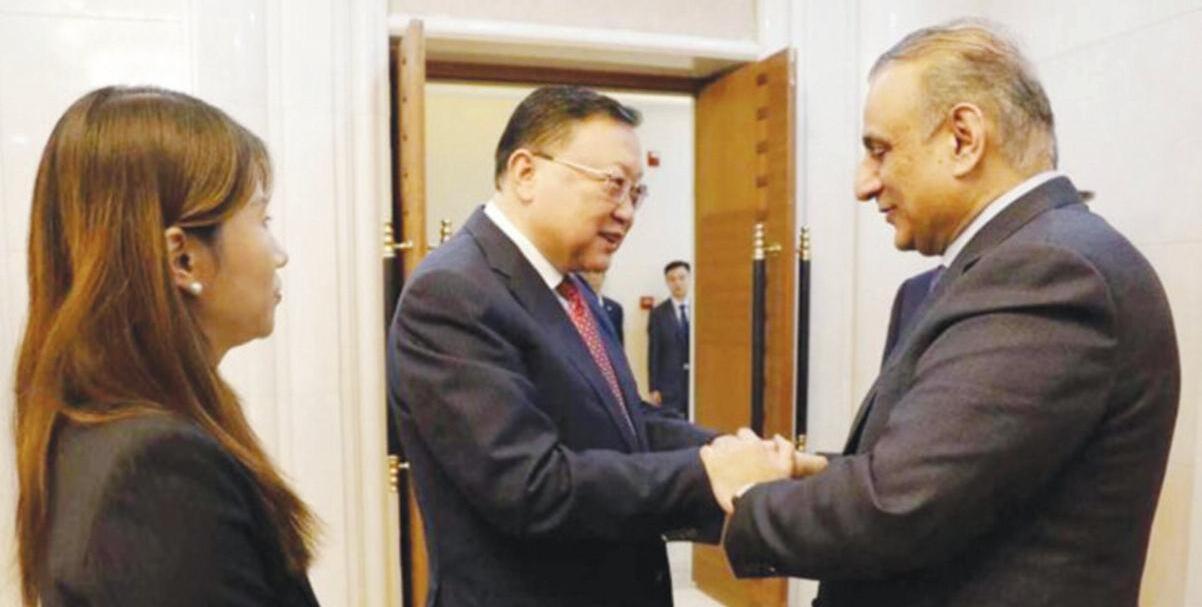
Li Xiapeng during International Transport Conference, which was held at Beijing Both the ministers held a detail discussion and agreed on 4 mega projects to be completed in Pakistan said a press release PA K-C H I N A A G R E E D F O R W

ISLAMABAD

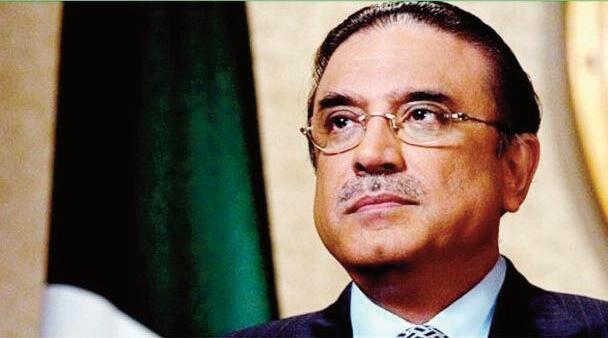
Breakthrough in buffalo breeding as countr y repor ts first
calf bir th
In a major biotechnology milestone, Pakistan successfully birthed buffalo calves using the OPU-IVFET (Ovum Pick-Up, In-Vitro Fertilization, and Embryo Transfer) technique for the first time in its history Royal Cell Biotechnology (Pakistan) a subsidiary of China s Royal Group introduced the innovative technique in the country Trials at Faisalabad s Ibrahim Dairy Farm led to the successful implantation of embryos from elite buffaloes into recipient animals From eight transfers, six pregnancies were achieved, resulting in five births, according to Dr Qaiser Shahzad a senior official at Royal Cell Pakistan Similarly two calves were born from five transferred embryos at HAS Dairy Farm in Gujranwala he added This progress is part of the broader Buffalo Breeding Project under the China-Pakistan Economic Corridor (CPEC), Dr Shahzad noted The OPU-IVF-ET process involves ultrasound-guided egg collection from superior buffalo breeds in-vitro fertilization to create embryos and their transfer into healthy buffaloes ultimately improving breeds for enhanced milk production and reducing the breeding cycle
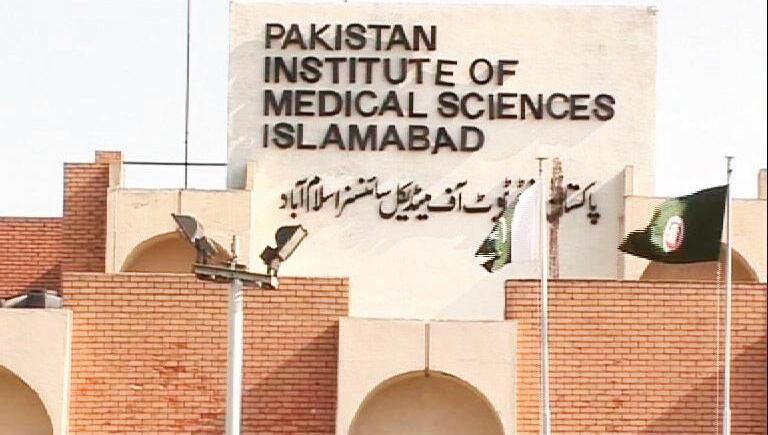
Agric ulture varsity closed af ter female student dies
MULTAN
N e w S D e S k
A large number of students from the Muhammad Nawaz Shareef University of Agriculture in Multan have launched protests following the tragic death of a female student Minahail who was involved in a motorcycle collision with a university bus
The incident occurred Monday, and tensions have escalated as students gathered outside the university to voice their anger, chanting slogans against the university administration In response to the protests the University of Agriculture has been closed for two days in mourning for the deceased student
The university spokesperson confirmed the closure, expressing deep sorrow over the loss and stating that this decision was made out of respect for Munahal
The bus driver involved in the accident, identified as Amir, has been
suspended as investigations continue The protests have intensified with students demanding accountability and better safety measures from the administration A 5th semester student of the BioChemistry Department of Muhammad Nawaz Sharif University of Agriculture died after her motorbike hit
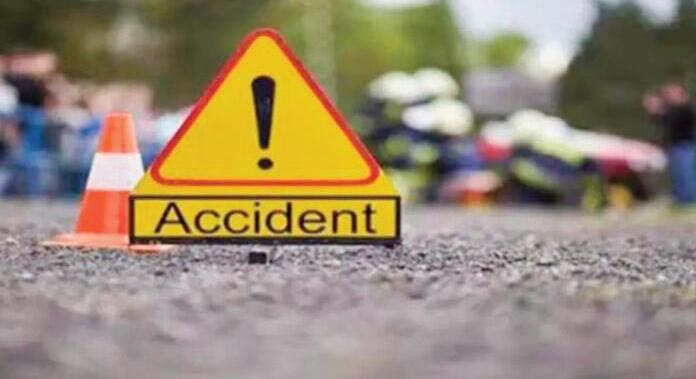
Pakistani leaders welcome 21st C hina-ASEAN Expo


Fossil fuels and renewables
TH E news from the Oil and Gas Development Corporation Board of Directors, and from the report of Sazgar Engineering Limited to the Karachi Stock Exchange indicate that while fossil fuels and renewables are an ús-or-them’ clash for environmentalists, they are both important factors in the Pakistani industrial landscape, or rather in the architecture of its industrial development Pakistan needs industrial development, so that its people can escape the poverty they are trapped in, and its government the debt trap it mired itself into It may not be able to afford an environment, so urgent is its need for development A recent example are the objections being made by the Asian Development Bank the lead lender, to the conversion of the under-construction Jamshoro power plant from imported coal to Tharparkar coal The conversion would lead to massive foreign exchange savings, but would be polluting
The OGDCL BoD announced a final dividend of Rs 4 00 per share, after an interim dividend of Rs 6 10 per share, the final dividend declared has been Rs 10 10 per share Oil and gas exploration is key to the Pakistani economy, for any discoveries, as were made this last fiscal year will reduce the country’s foreign exchange burden OGDCL is also producing oil gas and liquefied petroleum gas and has reversed the previous trend of declines in oil production of 20 percent and 24 6 percent OGDCL ‘s production and discoveries reduce Pakistan’s fuel import bill Meanwhile Sazgar which already makes vehicles under licence from three Chinese manufacturers has intimated the KSE that it intends to start production of New Electric Vehicles by the end of next year Here too environmentalists might look askance at electric vehicles which are charged with power produced by using oil-burning thermal plants
The real change (environmentally) will come when electric vehicles are charged by solar power That will bring about a true transformation of the whole transport sector not just oil and gas Meanwhile though both OGDCL and Saazgar

US Senate hearing showcases hate
How politics overcame truth
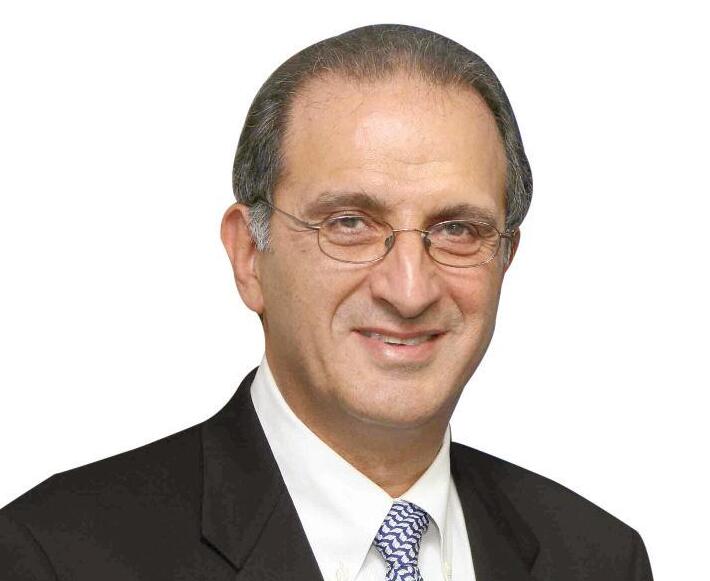
OU R politics and system of governance is in crisis This was made clear this past week before and during the US Senate Judiciary Committee’s hearing on hate crimes in the USA
The hearing was titled A Threat to Justice Everywhere: Stemming the Tide of Hate Crimes in America and was designed to examine the dramatic increase in hate crimes and to suggest a whole of government approach to deal with this problem The expert witnesses invited to present testimony were: Kenneth Stern Director of the Bard Center for the Study of Hate; Maya Berry Co-chair of the Hate Crimes Task Force at the Leadership Conference on Civil and Human Rights (LCCHR) and Executive Director of the Arab American Institute; and Rabbi Mark Goldfeder, Director of the National Jewish Advocacy Center Stern and Berry were invited by the Majority (Democrats), while Goldfeder was the pick of the Republican side Even before the day of the hearing the depth of the divisions plaguing American society were evident Republicans objected that the hearings were designed to focus on hate crimes affecting all vulnerable communities in the USA What they wanted instead was a replication of the hearings that the GOP-led House had convened ostensibly focused on antisemitism but which strayed far afield A few conservative American Jewish organizations were also troubled by this broader approach Republicans criticized Stern, who despite having been an official at the American Jewish Committee and the lead author of the controversial International Holocaust Remembrance Alliance (IHRA) definition, has since become a critic of the way this IHRA definition has been used to restrict free speech and its conflation of some legitimate criticism of Israel with antisemitism Berry is one of the leading researchers on hate crime data on the federal and state levels and the problems encountered in hate crime reporting She was also the force behind the “Jabara-Heyer NO HATE Act” designed to improve federal hate crime reporting Though highly regarded for her advocacy for all affected communities through her work with LCCHR she was seemingly targeted by Republicans for one simple reason: She s an Arab American who has been critical of Israeli policies and of efforts, domestically,
to punish critics of those policies
It was clear from the outset that all would not go well Democrats made the case that their concern was the overall rise in hate crimes affecting multiple groups, while Republicans derided the entire effort as deliberately sidestepping the “real problem” antisemitism For her part, Berry meticulously detailed the statistics of the dramatic rise in recent years in hate crimes against each group: Blacks Latinos Asians Arabs Jews Muslims LGBTQ and those with disabilities She then outlined problems with underreporting the difficulty in reconciling state and federal data, and made specific recommendations for improving reporting and enforcement of existing hate crime legislation Stern insisted that universities have an obligation to protect all students and faculty against being “bullied harassed intimidated threatened or discriminated against cautioned Congress against codifying a broad definition of antisemitism, noting it has not been necessary to fight hate for any community He argued that instead of policing speech prioritizing one view over another, resulting in an “us versus them” polarization universities had the responsibility to protect speech and promote civil discourse by challenging students to understand diverse points of view and the people who hold these views It is the more difficult path to pursue, but, in the
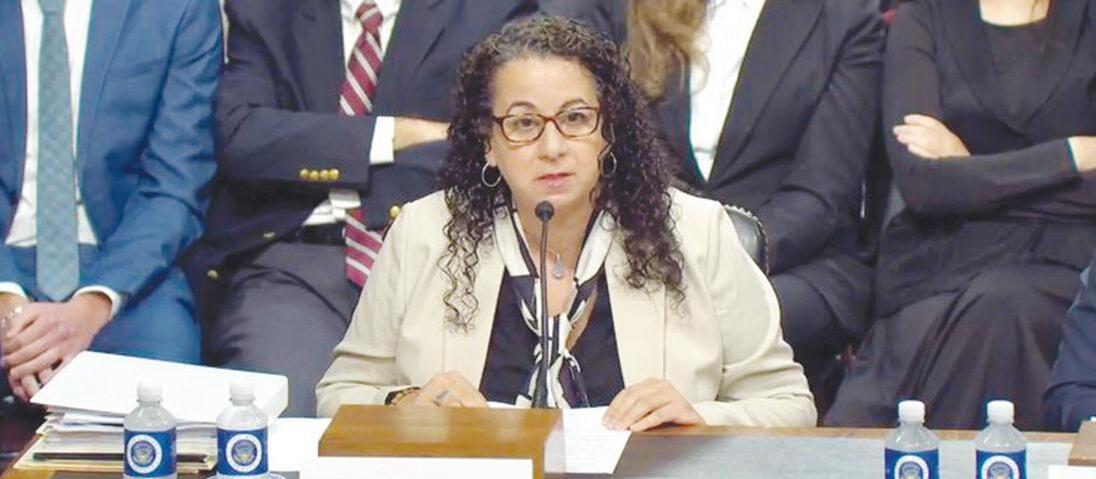
The audience of larg ely Arab and Jewish Americans, who had gathered to witness the hearing, instead of learning about the rise of hate and the crimes that might result from it, left with heightened passions It was, as Berr y noted, disappointing and an indication of how broken we have become
Social Media in cultural revolutions and social movements
tion on
Tshare their stories and perspectives Historically, cultural revolutions and social movements relied on print media, radio, television and face-to-face gatherings to spread their message These methods while effective were often limited by geographic constraints censorship and the time it took for information to travel In contrast, social media
The Arab Spring (2010-2012) is one of the earliest and most prominent examples of social media s influence on social movements Citizens in Tunisia Egypt Libya and North African countries used Facebook and Twitter to organize protests, share information, and
against African Americans in the USA, gaining momentum through social media Twitter and Instagram were used to share videos of police brutality organize protests and foster conversations around racial injustice The movement quickly grew into an international force demonstrating the power of social media to amplify calls for justice
Survivors of
violence
to
platforms like
and
based violence Social media not only provided a platform for survivors but also held perpetrators accountable in ways that were previously unimaginable One of the most significant ways is social media has impacted cultural revolutions by amplifying marginalized voices Historically media outlets and public platforms were controlled by elites leaving little room for underrepresented communities to share their stories and influence public discourse Social media has changed that dynamic It allows individuals from all walks of life to participate in conversations about power and justice This has been particularly evident in movements for racial justice gender equality and environmental activism Social media provides these movements with a platform to challenge dominant narratives, expose injustices, and organize large-scale protests and actions
CULTURAL REVOLUTION: Cultural revolutions often signify shifts in societal values norms and practices and social media has become a key driver in these transitions In regions experiencing political upheaval or cultural repression, social media has provided an alternative space for marginalized voices Cultural adjustments facilitated by social media are also evident in how communities adapt to new norms and technologies Digital platforms break down traditional geographic and cultural barriers, allowing cross-cultural interactions and exchanges of ideas The #MeToo movement, for example, crossed borders and sparked conversations about gender-based violence in numerous countries influencing cultural and legal reforms
ROLE OF SOCIAL MEDIA IN ACADEMIC LITERATURE: Academic literature on the role of social media in social movements
Social media has fundamentally altered the dynamics of cultural revolutions and social movements, providing both oppor tunities and challeng es
and cultural revolutions highlights both its transformative potential and its limitations Manuel Castells in Networks of Outrage and Hope argues that the internet and social media platforms facilitate decentralized leaderless movements helping to democratize protest
Clay Shirky emphasizes how social media lowers the cost of organizing and makes it easier for like-minded individuals to find each other and collaborate On the other hand Malcolm Gladwell in his article Small Change critiques the belief that social media can instigate meaningful social change arguing that successful movements still require deep personal commitment and on-the-ground organization While social media undoubtedly plays a significant role in facilitating cultural revolutions and social movements its impact is not uniformly positive One of the primary criticisms is that social media can foster slacktivism a form of activism that involves minimal effort, such as liking, sharing, or retweeting posts without real engagement While social media can draw attention to a cause there is concern that it may not always translate into tangible on-the-ground change
The Occupy Wall Street movement for example garnered significant online attention but struggled to achieve concrete policy reforms
SOCIAL MEDIA CONTRIBUTES TO POLARIZATION: Additionally social media can contribute to polarization Algorithms designed to maximize engagement often favor sensational and emotional content creating echo chambers that reinforce existing beliefs This phenomenon can exacerbate divisions in society, as seen in the 2020 US elections, where social media played a role in spreading misinformation and deepening political divisions The role of social media in state surveillance and control also deserves critical attention Authoritarian regime governments have become adept at using social media platforms to monitor dissent, spread propaganda and manipulate online narratives In countries like China, social media is heavily censored and dissenting voices are quickly silenced The ability of states and corporations to collect large amounts of data from social media users also raises concerns about privacy and the commodification of activism Social media has fundamentally altered the dynamics of cultural revolutions and social movements, providing both opportunities and challenges It has democratized activism allowed for rapid mobilization and amplified the voices of those traditionally excluded from mainstream discourse However its role is complex, as it can also contribute

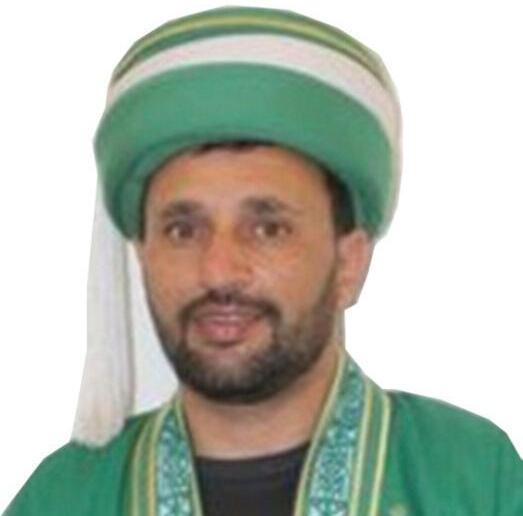

TE A C H E R S have a rare chance to have a big impact on students’ lives in the face of environmental deterioration and climate change Teachers of English as a Second Language (ESL) can improve their students language proficiency and promote critical environmental awareness by integrating environmental vocabulary and themes into their courses With this combined approach students gain critical understanding about current global challenges in addition to improving their English language proficiency WHY INTEGRATE ENVIRONMENTAL
TOPICS IN ESL?: There are many advantages to including environmental topics into ESL classroom instruction It enhances students comprehension of global issues while assisting them in acquiring useful language skills Students gain relevant vocabulary and context that are essential in today s society by learning about subjects like climate change, “sustainable development,” and “renewable energy” Talking about words like “carbon footprint” and “greenhouse gases” helps people understand the vocabulary used in the study of climate These words are critical to comprehending environmental issues and are a helpful lexicon in a variety of settings, including discussions about sustainability in ordinary discourse and academic settings Most importantly incorporating environmental themes into ESL lessons improves language proficiency but also has drawbacks It may be difficult for ESL teachers to strike a balance between environmental education and traditional language learning goals Students’ engagement may also be im-
pacted by their differing degrees of acquaintance with or interest in environmental issues According to Khan and Thompson (2017), incorporating environmental themes is still an effective way to improve language proficiency and environmental awareness despite these difficulties
CREATING ENGAGING LESSONS WITH ENVIRONMENTAL FOCUS: Think about incorporating environmental principles into routine ESL tasks to make them interesting and approachable The following are some tactics:
REAL-WORLD CONTEXTS: Design language activities based on contemporary environmental issues For example, reading comprehension exercises could incorporate articles about “deforestation” or “plastic pollution” (UNESCO 2017) Students can relate language study to current events by using this method According to Coyle Hood and Marsh (2010) students capacity to connect language to real-world situations can be enhanced by including real-world contexts into instruction But it’s crucial to make sure that the manner these subjects are presented corresponds with the language competency levels of the learners
INTERACTIVE DISCUSSIONS: Students should be encouraged to talk about environmental issues like the benefits of recycling” or “the impact of climate change
on local communities These conversations ought to be organized around questions that encourage language practice and critical thinking Although this method can lead to thought-provoking debates, it is important to make sure that the talks stay on topic and within reach of all learners
ROLE-PLAYING ACTIVITIES: Set up roles for the children to play as legislators or environmental champions As a study revealed, they could have a discussion on the “importance of protecting endangered species” or “renewable energy solutions” Students gain proficiency in language and comprehension of the effects of environmental issues through role plays But in order to keep language practice and environmental material in balance, teachers should oversee these exercises
From a critical standpoint these techniques improve student participation but cautious preparation is required to make sure that the environmental information complements the acquisition of language objectives rather than obscures them Instructors need to find a balance such that environmental education enhances language learning without taking away from it
PROJECT-BASED LEARNING: Assign students research and presentation tasks related to environmental issues For example, have them prepare a presentation on climate change mitigation strategies” or make a
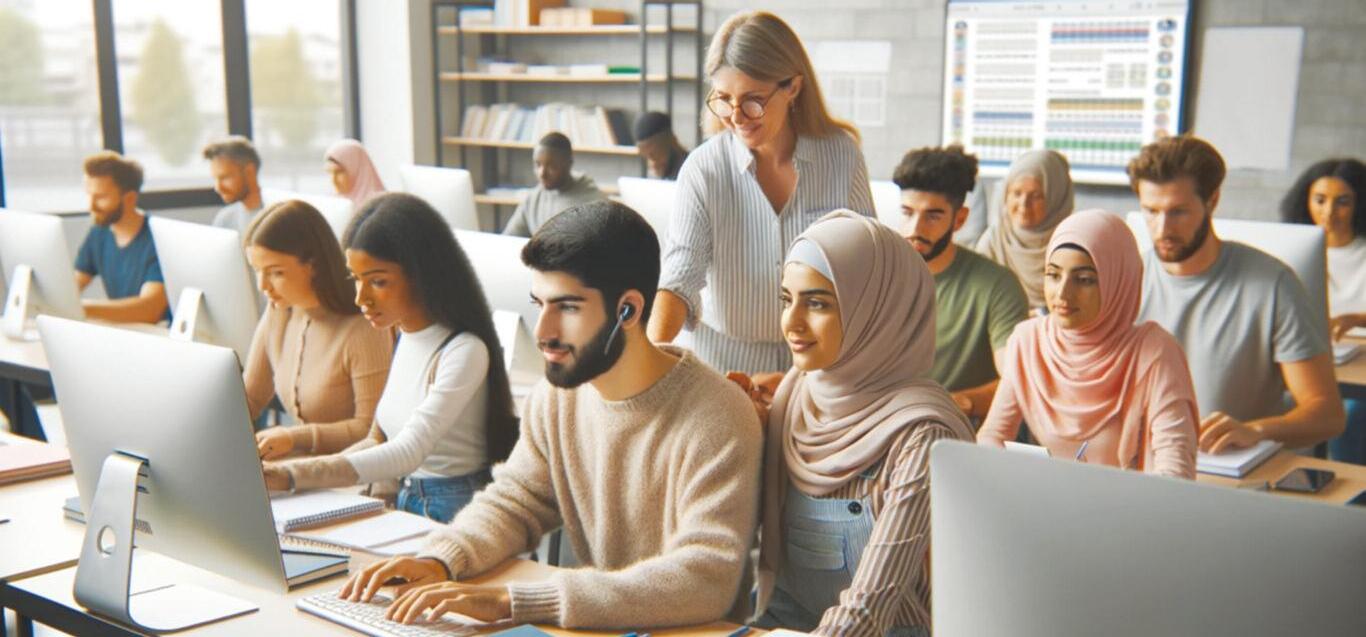
poster about sustainable practices Students can use their language abilities creatively with the support of these exercises
However as has been pointed out projectbased learning can be resource-intensive and children who struggle with language acquisition or environmental concepts may need extra help
VOCABULARY BUILDING: Throughout the class make sure to introduce and utilize important phrases related to the environment Make lists of vocabulary words and utilize them for activities such as sentence construction or matching terms to definitions Repetition strengthens learning and boosts self-assurance It’s crucial to make sure that vocabulary-building exercises are suitably scaffold and to refrain from overexposing learners to too many new concepts at once
PRACTICAL TIPS FOR ESL TEACHERS: Use Visual Aids: To make complex concepts more comprehensible and captivating, include infographics, charts, and illustrations pertaining to environmental concerns
CONNECT TO STUDENTS LIVES:
Connect environmental subjects to the lives of the learners you teach For example, talk about how air pollution impacts their hometowns or look into “recycling pro-
e a c h i n g Te a c h e r s c a n h e l p s t u d e n t s d e v e l o p a g r e a t e r a w a r e n e s s o f t h e w o r l
Who really funds the Jewish Chronicle?
FOSTER A COLLABORATIVE
ENVIRONMENT:

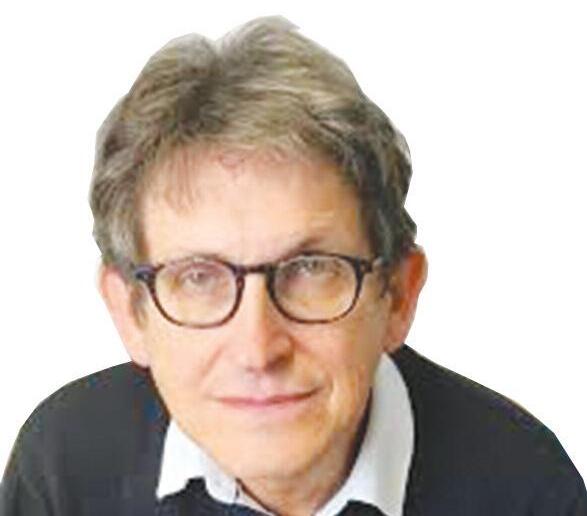
Four years ago, a mysterious consor tium came to the rescue of the beleaguered publication and nobody is really clear about who is behind the scenes. But openness matters, especially when politics is involved Rich men (nearly always men) generally buy media organisations for one of three reasons: profit, influence or philanthropy
and thus on whoever might read it and/or be swayed by its coverage and arguments, especially in relation to Israel Well, we don t know But imagine a mystery foreign backer with a plausible British frontman buying the Telegraph, on condition that his identity be kept schtum There would rightly be a parliamentary hue and cry about their background and motives
One of those involved in the Gibb-led consortium told me he now regretted ever being involved because of its incredibly opaque nature
He said he and another consortium member had asked directly who the other backers were and found it was “an absolutely closed door”
Three sources told me they believed that a large slice of the money for the JC came from a right-wing American billionaire, Paul E Singer, sometimes referred to as a vulture capitalist Singer is the founder of Elliott Management and made a fortune estimated at $6bn by buying distressed debts and selling them for high value
He has been described as a longtime supporter of hawkish pro-Israel causes and is one of the major funders of the conservative thinktank Foundation for Defense of Democracies, whose positions, according to Slate, have closely tracked those of the Likud party and its leader Prime Minister Benjamin Netanyahu”
“During the debate over the Iranian nuclear deal Singer used his fortune to support opponents of the agreement including by founding an antideal Christian group, reported the Forward, an influential American Jewish newspaper If Singer had been involved in the funding of the JC, and had influenced the editorial line, that would be surely a matter of public interest
But a spokesperson for Singer s hedge-fund company said it was nonsense
Another person who it was suggested to me was involved in the deal is a man named Davis Lewin, who has been attached to various rightwing thinktanks or organisations, including the Henry Jackson Society the Friends of Israel Initiative and the High-Level Military Group But he is an elusive fellow so who knows? It s hard to see why bailing out a newspaper should be a secret and there are lots of reasons why it shouldn t be The Leveson Inquiry in 2011-12 did its best to work out how assorted owners and proprietors attempted to influence the news It didn’t get very far but at least it was working with real faces and real names In March the JC announced it was turning itself into a charitable trust though without any details of its structure, or details of editorial control Given the paper s pungent line during the Israel-Gaza war some doubt that it could plausibly present itself as a charity In any event the crucial question is how independent the editor is of the trust To date: no answers The consortium member I spoke to described the JC s recent coverage of Israel as my country, right or wrong My own view is that it does a disservice to the Jewish community because it consolidates this idea that, you know, the Jewish community abroad is in some way sort
of complicit by their silence with the excesses of the IDF The consortium member said that he now felt that Wallis Simons, especially in his behaviour on social media, “is behaving like a political activist, not a journalist ” The coverage of Israel-Gaza and its editor’s often uninhibited behaviour on social media ( onward to victory! in posting a video of a huge bomb killing untold people in Gaza city in December) sits oddly with the impartiality its nominal owner, Gibb, urges when wearing his BBC hat In addition to impartiality, Gibb is, along with his fellow BBC directors signed up to the Nolan principles of accountability and openness The board s own website commits them to submit themselves to whatever scrutiny is appropriate to their office They should restrict information only when the wider public interest clearly demands” But it seems Gibb doesn’t believe this applies to him beyond his BBC role: he has flatly ignored any of my questions about his role as the sole named director of the JC Nor will he tell anyone whose money is behind the paper he owns You wonder how he grapples with the potential conflict of interest Firstly, Gibb sits on the key committee looking at editorial standards at the BBC the coverage of the war in Gaza is about the hottest editorial potato imaginable for the BBC just now Secondly his editor Wallis Simons has been bitterly critical of the BBC s reporting of the war He actively campaigned for a parliamentary inquiry into the BBC’s coverage of Israel and wrote a piece headlined (if not by him): “The BBC’s Israelophobia is out of control with a subhead explaining that its distrust of the Jewish state is bordering on pathological How can Gibb possibly back his own editor while sitting on the
One nation, one election, one par t y, one leader: Modi’s plan must be nipped deep in the bud

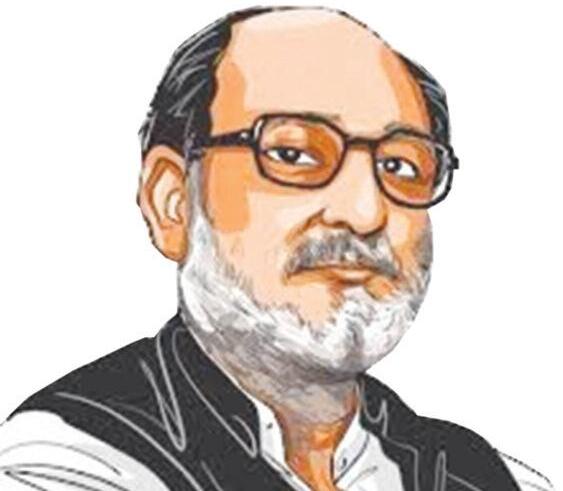
WAS there a more ominously forgettable idea spawned in independent India that all governments once elected simultaneously must be made independent of the electorate for five years, no matter what enormities they commit? All in the name of cutting the costs of democracy and leaving the powers that will be to feed corporate coffers without let or hindrance Make no mistake: this turn to the totalitarian right presupposes that democracy must be made a mere adjunct to profiteering, rather than letting the principle of representative governance be the soul of the republican order This nefarious attempt to de-politicise democracy then seeks to reverse the history of collective human evolution
Let us reiterate with conviction: the subject of human history is the evolutionary quest of human organisation from the hunting-gathering stage to the attainment of human equality through the systemic arrangement of representative governance All that after vanquishing monarchies and absolutisms of various definitions and records of oppression
The subject of human history emphatically cannot be allowed to be the cynical discarding of democracy at the hands of the money bags who rode the shoulders of liberty through the last four or so centuries only to make their piles and then kick the democratic ladder from behind Economic monopolies like nothing better than political monopolies; and neither are to the emancipatory purpose of the vast masses of humankind Uncompromisingly, as

CHINA FIRMLY SUPPORTS LEBANON IN SAFEGUARDING ITS SECURIT Y AND NATIONAL DIGNIT Y: CHINESE FM
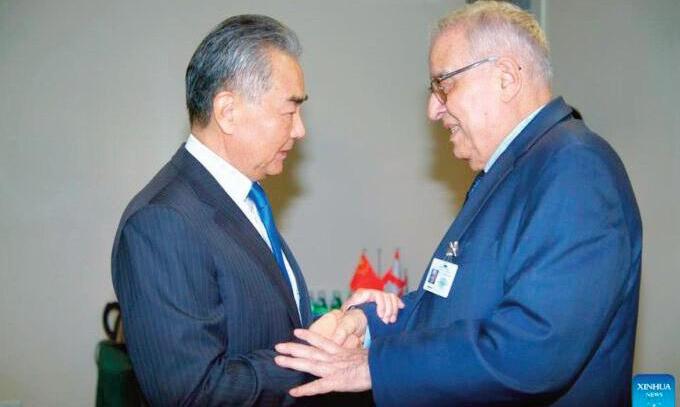
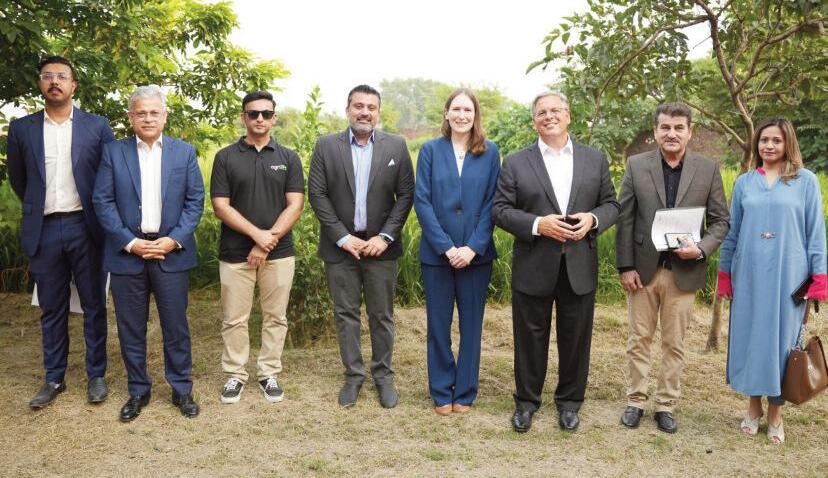
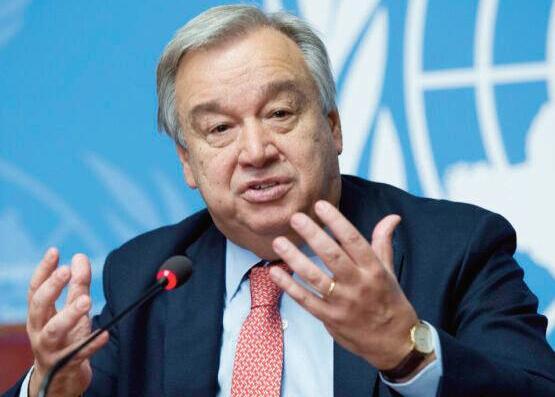
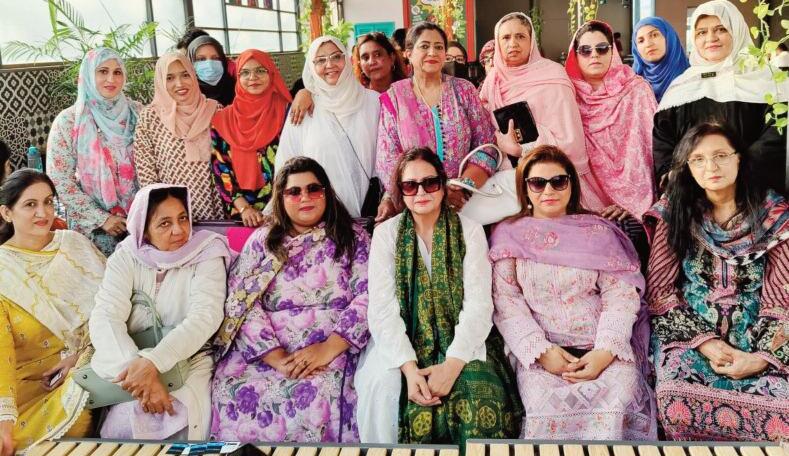
Wang Yi calls on major countries to be ‘propellers’ of world unity
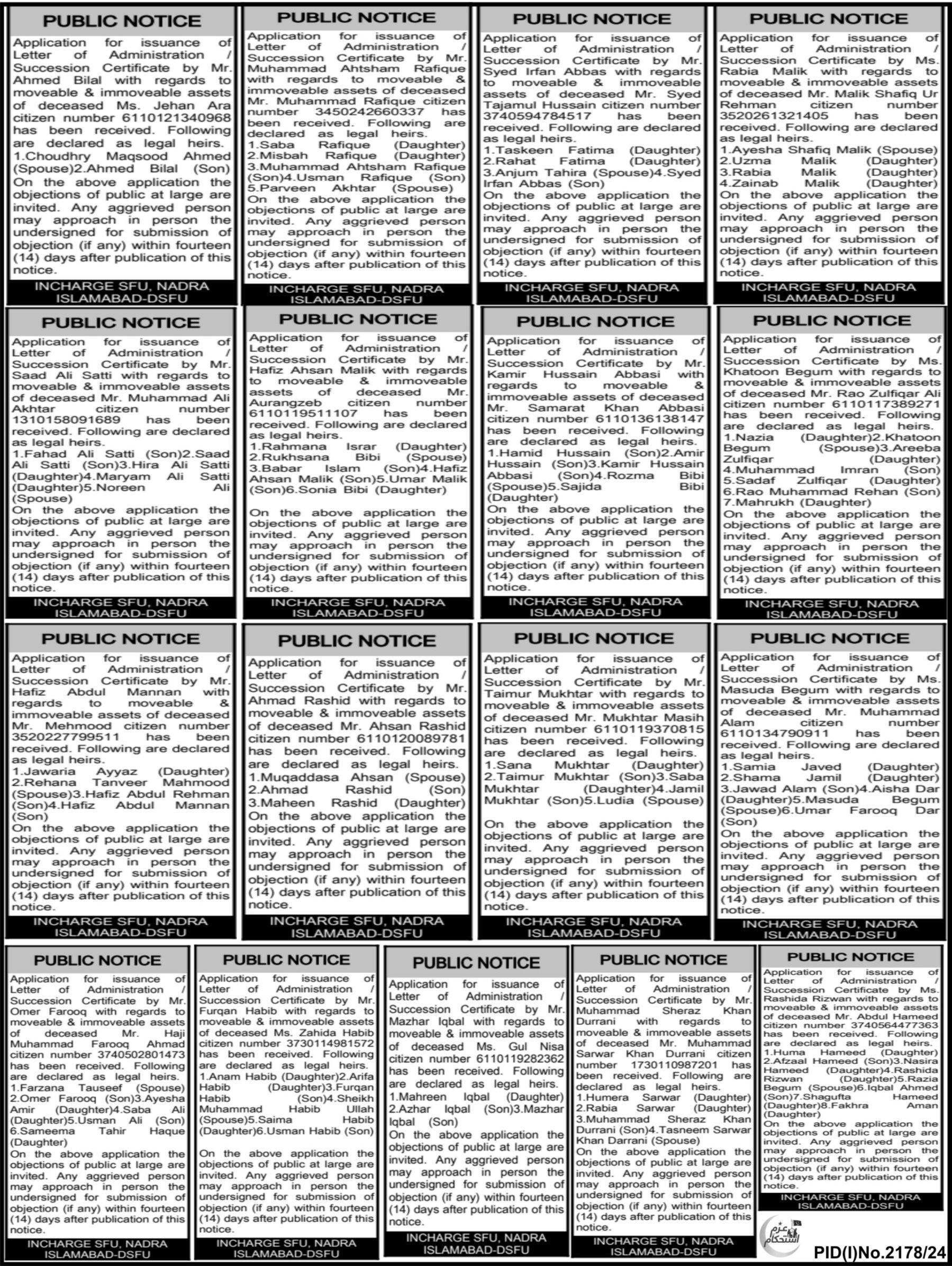
To tackle the common challenges of humanity and build a better world Wang outlined China’s four propositions He called for promoting peace and stability emphasizing that in a turbulent world no country remains unaffected Solidarity and cooperation among nations are essential, and he urged countries, particularly major powers, to resolve disputes through dialogue instead of geopolitical tensions or bloc confrontations Wang also stressed the importance of fostering development and prosperity saying all countries should share development opportunities and pursue win-win cooperation to ensure common prosperity for all countries He expressed opposition to the notion of small yard with high fences saying such approaches would only serve to divide the world Fairness and justice are also highlighted in Wang’s speech He said all countries regardless of their size and strength are equal members of the international community He firmly opposed the law of the jungle and acts of hegemonism such as unilateral sanctions urging to protect the legitimate rights and interests of developing countries and promote greater democracy in international relations
Bangladesh army backs interim gov t’s reform agenda, eyes election in 18 months
DHAKA s ta f f r e p o r t Bangladesh’s army chief vowed to back the country’s interim government “come what may” to help it complete key reforms after the ouster of Prime Minister Sheikh Hasina so that elections could be held within the next 18 months General


IG ISL AMABAD CONFIRMS ILLEGAL DETENTIONS AS SHO, DSP SUSPENDED IN SANGJANI CASE
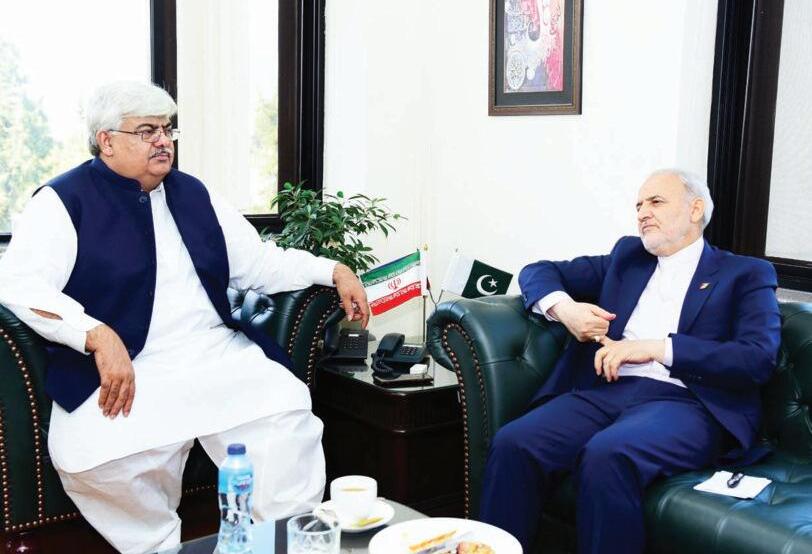
Police Chief Ali Nasir Rizvi has confirmed the illegal detention of three citizens at Sangjani police station, as reported in media outlets
Rizvi submitted an inquiry report to the Islamabad High Court revealing that the allegations were substantiated during the investigation
The incident, which took place on August 30, was formally registered on September 19 Rizvi informed the court that the Station House Officer (SHO) involved has been arrested suspended and charged with departmental proceedings underway Additionally, the inquiry officer has
been suspended and a special investigation team has been formed The Deputy Superintendent of Police (DSP) of Trinol has also been suspended and charged, while a twomember committee comprising DIGs has been constituted to investigate further The petitioner ’s lawyer praised the police chief for submitting a detailed and transparent report Justice Aamir Farooq commended the IG s efforts stating Good deeds should be lauded, the police chief did a good job, but also emphasized the importance of maintaining checks and balances to prevent such incidents in the future The court noted that the involvement of higher-ranking officials could not be ruled out and urged the police chief to conduct a thorough investigation The petition was subsequently dismissed
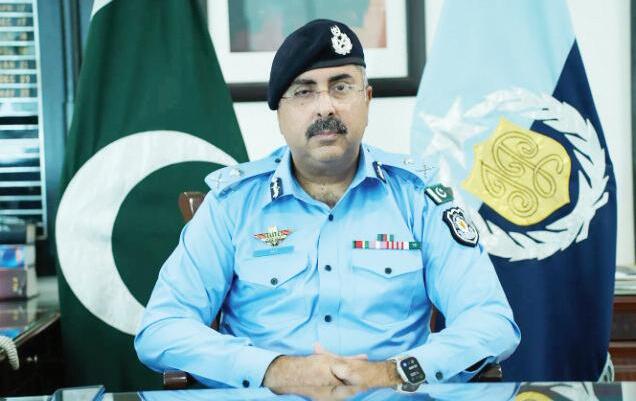
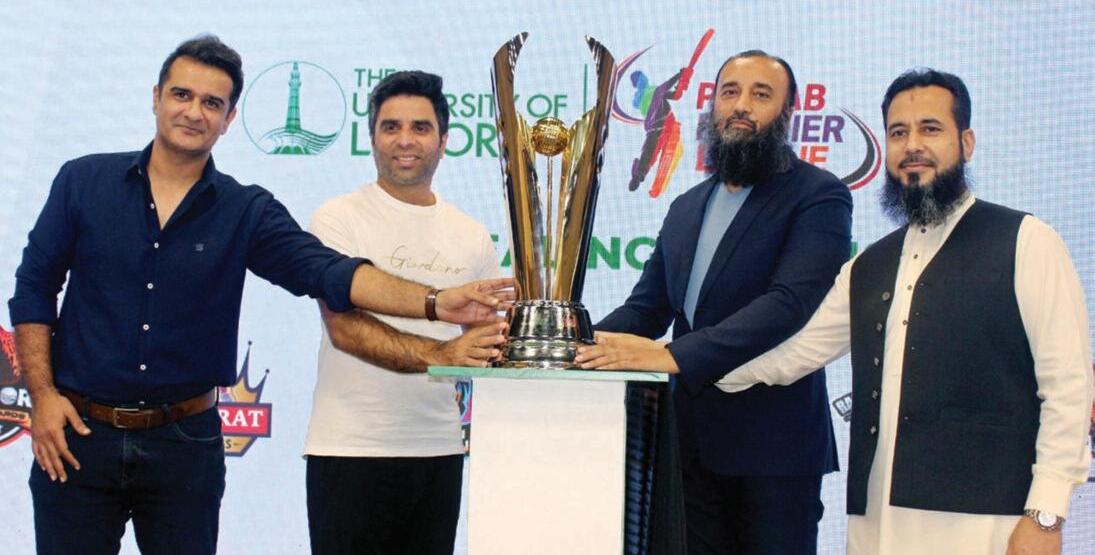
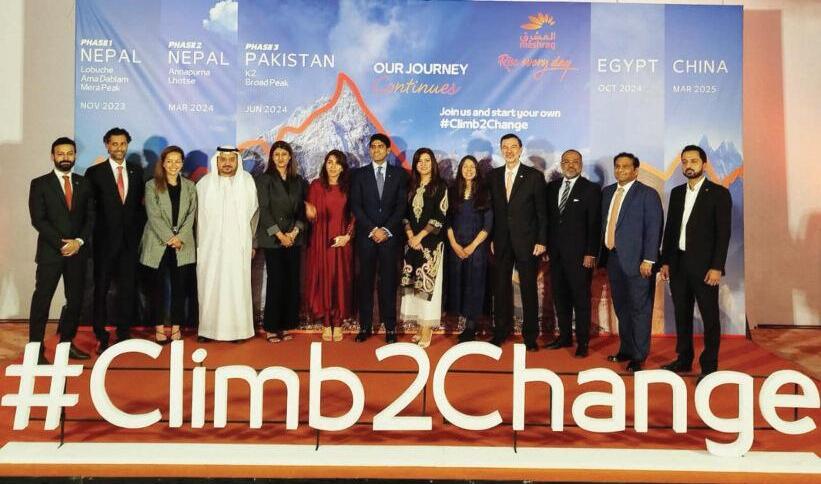
Asad Ali Younis Saiful Azam Khan and a large number of students participated in the ceremony Patron Chief Owais Rauf, former test cricketer Tawfiq
Umar, Asad Ali Younis and Nadeem Manzoor unveiled the trophy Chairman University of Lahore Patron-inChief Punjab Premier League Awais Rauf while addressing the opening ceremony said that this league is being held from October 4 to October 11 at Jinnah Stadium Gujranwala for which NOC has been taken from PCB This is the second league after PSL approved by the
SYED M ILYAS
Throughout the human history the Office of the Ombudsman has existed in one form or the other in various societies It has, over the years emerged as an essential feature of every modern society as it embodies the broad principles mainly adherence to the rule of law and upholding will of the people upon which the edifice of democracy is raised Today, the institution of Mohtasib exists in over 140 countries of the world including Pakistan as the principal watchdog of public administration
Broadly speaking it protects the citizenry by acting as a strong bulwark against administrative excesses as well as acts of maladministration by the public service agencies It also has a vital role in the promotion and protection of human rights and civil liberties Pakistan witnessed establishment of this vital institution in 1983 through a Presidential order, which

was later amended and broadened by an Act of the Parliament in 2013 which not only enhanced its powers but also imparted it with financial and administrative autonomy With 20 Regional Offices and 04 Complaint Collection Centers today it covers almost the entire length and breadth of the country It functions as a truly poor man s court since it requires neither any fee nor the services of any lawyer as the dispensation of justice is absolutely free Moreover the procedure is short and simple Multiple means are available to the public to lodge their complaints including the website, mobile phone or even a simple letter through post The complainants can join the investigation process/hearings through skype or other online applications and unlike the conventional court system the complaint is disposed of within the prescribed limit of 60 days
This office received and processed a record number of complaints in 2023 i e 194,106 which is
18% higher than the preceding year
It is noteworthy that 88% complaints were disposed of within the prescribed time limit of 60 days
The incidence of complaints recorded in the 3rd quarter of the current year is nearly 14% higher than the same period last year It manifests the growing public trust in the efficiency and viability of this institution as well as holds a promise for the future The satisfactory disposal of increasing number of complaints is undoubtedly the result of hard work dedication and commitment of its employees and series of initiatives including the Informal Resolution of Disputes (IRD), Outreach Complaint Resolution (OCR) and the Khuli Katcheries besides the inspection visits to various public service agencies In addition a system of strict monitoring follow up and verification of the implementation of every decision is in place and an impressive implementation rate of 85 4% was recorded in 2023
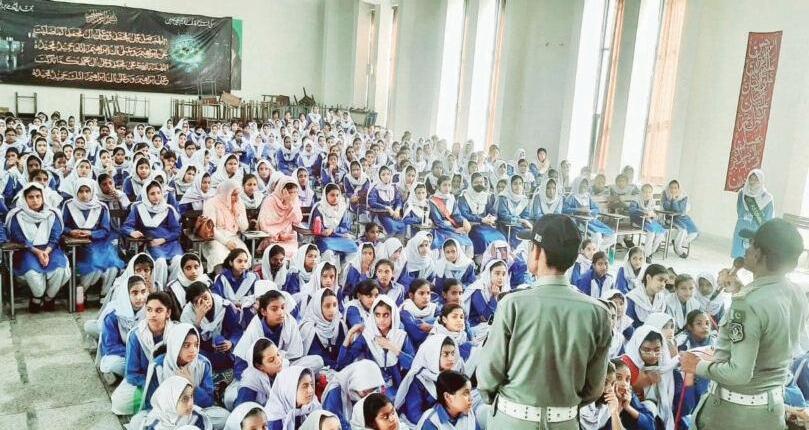
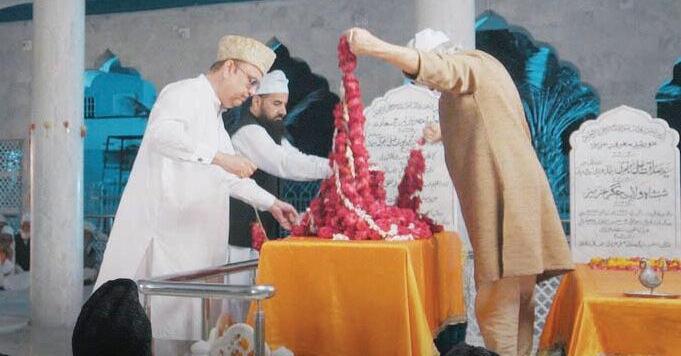


RESERVED SEATS VERDICT EXPOSED ROLES ASSIGNED TO ‘INDIVIDUALS UNDER LONDON PL AN’: IMRAN
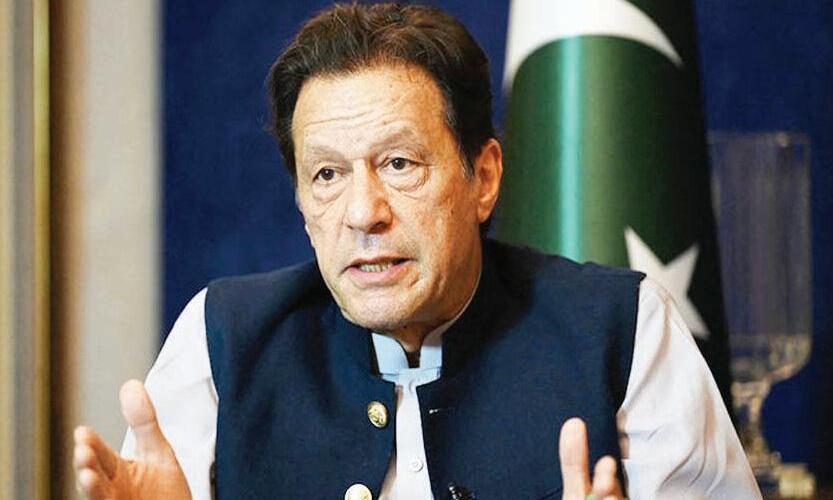
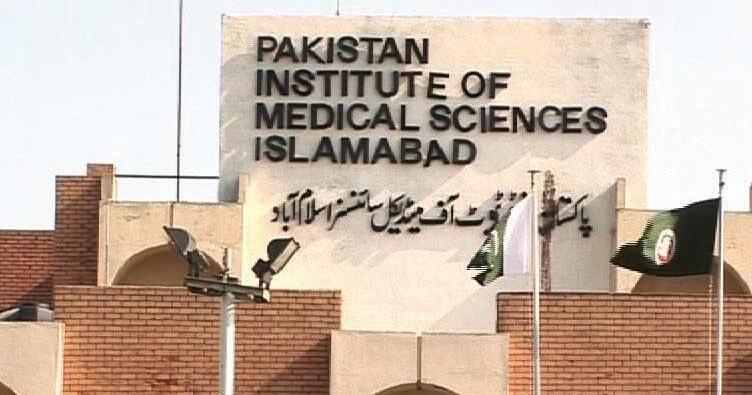
Pakistan Tehreek-e-Insaf (PTI)
leaders Hammad Azhar along with Sheikh Imtiaz, Alia Hamza and other party members on Tuesday were named in a case registered by the police following Azhar s participation in a party meeting in Kahna
The police took action after receiving reports of Azhar’s presence at the gathering where an attempt was made to arrest him According to the First Information Report (FIR) police arrived at the meeting to apprehend Hammad Azhar, who is already a wanted individual in Case No 90/23 at Sarwar Road Police Station The report states that during
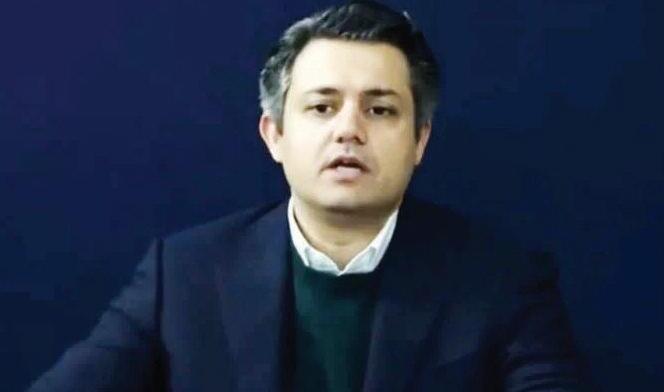
NA panel direc ts to star t work on ML-1 projec t at the earliest
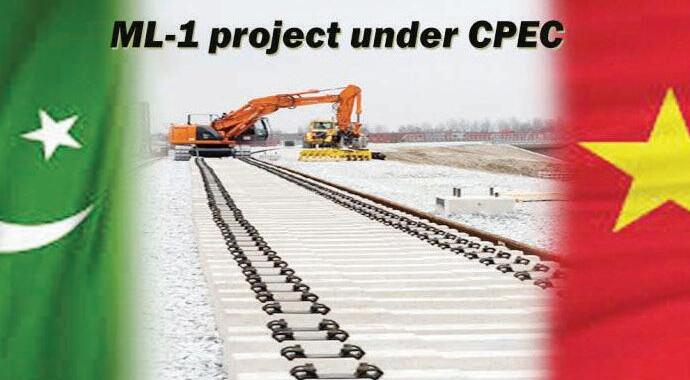
ISLAMABAD
S
National Assembly Standing Com-
mittee on Railways Tuesday directed the authorities concerned to start the Mainline-1 (ML-1) project at the earliest after completing all the documents and necessary steps
The committee that met here with Rai Hassan Nawaz Khan in the chair apprised that the phase-I would start in end of this year or in start of next year and would be completed within five years
Secretary, Ministry of Railways briefed the Committee about the project of Main Line (ML-1) Divisional Superintendents,
Pakistan Railways, Lahore, Mughalpura, Peshawar and Rawalpindi briefed the Committee about encroachments and lease of Railways land
They talked about non-cooperation of concerned district administration during anti-encroachment operations
The Committee recommended to approach the Provincial Governments for supporting during such operations
The Committee showed displeasure on presence of some officers on zoom and directed their presence in person in next meetings
The Inspector General of Police Pakistan Railways also
briefed about issues of staff, equipment salaries and packages of Railways Police The Committee recommended to perform its role to resolve those issues
The Secretary also talked about outstanding dues of Rs 2155 million which had to be paid by sponsoring agencies of Railway level crossings
The Committee recommended to approach the Provincial Governments to pay all the dues to Pakistan Railways
Lastly, the Committee extended the duration of Sub-Committee, which was constituted in previous meeting of the Standing Committee to look into the matters of encroachments/ lease of Railways land under the Convenership of Ramesh Lal MNA, for thirty days
The meeting was attended by Ramesh Lal, Waseem Qadir, Sadiq Ali Memon Ibrar Ahmad Zulfiqar Bachani Syed Waseem Hussain Ahmed Saleem Siddiqui Syed Shah Ahad Ali Shah Shafqat Abbas and Muhammad Jamal Ahsan Khan
The senior officers from Ministry of Railways and Pakistan Railways were also present in the meeting
